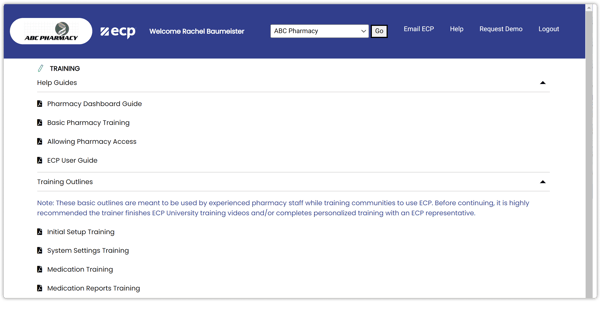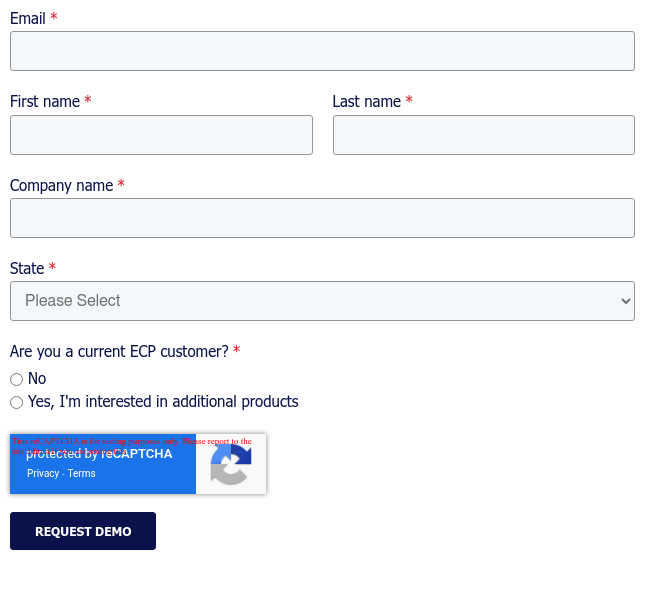The top 7 Assisted Living citations – and how to avoid them.
Citations from your state's Department of Health can lead to correction plans, costly fines, and worse – license revocation. Avoiding citations and fully complying with state regulations is one of the most important responsibilities of any assisted living community.
Many families also say that reviewing a community's citation record is a big part of choosing the right community for their loved one. So not only can citations be expensive today – but they can be even more expensive over the long term by negatively impacting move-ins and occupancy.
To help assisted living communities understand and avoid common citations, ECP reviewed data from the North Dakota Department of Health to understand the seven most common assisted living deficiencies leading to citations – and help communities plan to avoid those citations before they happen.
Note that nothing in this blog post is intended to be legal or regulatory advice! If you do need advice specific to your own situation, you should consult with a lawyer or your state’s regulatory authorities.
1. Medication Errors
The most common Assisted Living citations are due to medication errors. While regulations vary by state, in states in which AL communities administer medications, those communities are responsible for making sure that the 8 rights of medication administration are followed.
These rights are:
- Right resident
- Right medication
- Right dose
- Right route
- Right time
- Right documentation
- Right reason
- Right response
Missing any of these eight med rights can be a big problem. For instance, administering a medication to the wrong resident, or giving a resident the wrong dose of their medication, can have very serious health consequences for that resident. It can also lead to a very serious citation for your community.
Assisted living communities are also responsible for maintaining proper documentation. If documentation is missed, not only can it lead to a resident missing a dose or receiving a dose twice, but it can also lead to a statement of deficiency from your state Department of Health.
How can I avoid citations for medication errors?
The most important step to avoid med errors is to implement an eMAR – an electronic medication administration record. ECP offers one of the most popular eMAR systems for senior living, which you can learn more about here.
eMAR systems are specialized software programs that connect to your residents' long-term care pharmacies, automatically bring over med orders (including new med orders, updates/change orders, and discontinue orders), and create task lists to help your med passers administer the medications correctly. eMARs also automatically generate the documentation and ask the follow-up questions necessary to comply with regulations. You can read more about how eMAR systems help assisted living communities comply with the 8 med rights here.
Other important steps to avoiding med errors are establishing a strong relationship with your residents' pharmacies so that you have a helpful point of contact to ask any questions and ensuring that your community’s med-passing staff is properly trained both in medication administration and in your eMAR system.
2. Resident Recordkeeping
Assisted living communities are responsible for keeping records on their residents. While requirements vary by state, they typically will include what information is required to be kept (e.g. demographic information, health information, information on what physicians treat a resident, etc.).
Regulations, including HIPAA, may also cover how long records must be kept, and include requirements around maintaining the confidentiality of records and ensuring those records are stored in a manner that prevents loss or destruction.
How can I avoid citations for resident recordkeeping?
The key to avoiding citations like this is to keep thorough and accurate records and store them in a compliant manner. Software can be a great help here too by providing prompts for all the records that you’re required to keep (making sure that you don’t forget anything). As importantly, software can help ensure that records are kept securely, encrypted, are stored for the appropriate length of time, and are maintained in a compliant manner to avoid loss or destruction. ECP’s eMAR and EHR products both contain recordkeeping functionality that can help communities avoid these citations.
3. Resident Assessments and Care Plans Do Not Include Required Components
A key regulatory requirement for assisted living communities is to assess residents, understand their individual needs, and create and execute care plans that meet those needs. While each state’s requirements differ, these regulations often either require the use of a certain assessment (such as Florida’s AHCA 1823 requirement) or allow communities to develop their own assessments but impose minimum requirements upon them. States may also impose requirements on all of the elements or sections that residents’ individual care plans are required to include.
Communities can be cited for failing to comply with these regulations for using the wrong template for their assessments, for not including required sections or questions in their assessments, for failing to develop care plans covering all required areas of care, or for failing to fully complete required sections of assessments with all residents.
How can I avoid citations for assessments and care plans not including required components?
Communities that are assessing and developing care plans on pen and paper should be careful to thoroughly review all relevant regulations and to periodically check them for updates. They should be sure to fully complete all paper assessments and cross-reference all care plans to be sure that they are properly individualized to each resident’s assessment. State authorities may be able to provide templates in some cases.
Alternatively, communities can use software to automate much of the assessment and care plan creation process. ECP’s EHR module contains assessments complying with state regulations for all 50 states. In addition, ECP’s care planning engine automatically generates personalized care plans and daily caregiving task lists for each resident in a community. Using a system like ECP can help communities ensure that assessments and care plans are up to code and help avoid costly citations. You can scroll down to the map of states on this page and click on your state to learn more about how ECP helps communities comply with this regulatory requirement.
4. Dietary Services
Many states have requirements around the dietary options that must be provided to residents, as well as the timing of meals, the inclusion of snacks, and the way daily menus are provided detailing what options are available.
How can I avoid citations for dietary services?
The key here is to familiarize yourself with the requirements of your state and make sure that the food that you’re providing meets those requirements. You want to be sure that it is tasty for your residents, too!
Most communities have kitchen staff in-house, who create delicious menus each week and then provide food to residents. Other communities use third-party services to help prepare menus, cook food, or otherwise comply with dietary service requirements.
5. Resident Assessments and Care Plans Not Updated
Given that a core role of assisted living communities is to help seniors with the activities of daily living (“ADLs”), it is no surprise that most states require that communities reassess all residents, and update care plans, on a regular basis. Some states have a requirement that assessments and care plans be updated quarterly. Another common requirement is that assessments and care plans be updated whenever a resident's needs change, in addition to the regular schedule. This means that if a resident’s condition changes, then they must be reassessed, too, and their care plan updated.
Communities that fail to reassess residents when they are due for an assessment, or who fail to update care plans when a resident is reassessed, will commonly be cited.
How can I avoid citations for assessments and care plans not being updated?
Pen-and-paper communities will often keep detailed calendars of when residents are due to be reassessed and will carefully review past paper notes to ensure that when a resident’s condition changes, that resident is reassessed, and their care plan updated.
However, software is the easiest way to ensure compliance. An important feature of ECP’s EHR module is that it allows communities to set reminders for when a resident needs to be reassessed. This way, staff is automatically alerted when a new assessment is due without the need to manually track assessments on a calendar. Even better, the care plan will be automatically updated when the assessment is completed.
ECP contains histories of all residents' cares that are charted, and contains numerous clinical reports too, that help communities recognize when a resident’s condition has changed so that they can be reassessed.
6. Inadequate Employee Training
Many states require that Assisted Living communities provide regular training and education to all staff members. Some communities call these trainings “in-service trainings” or “in-services”. These requirements can include training into a number of categories, such as:
- Regulatory requirements
- Residents’ rights
- Proper med passing
- Infection prevention and control
- Universal precautions (such as handwashing)
- Resident mental health needs
- Resident physical health needs
- Fire safety
- Accident prevention and safety
Failing to ensure that all staff members receive required trainings as frequently as required (such as at least annually), or failing to ensure that trainings meet all requirements, can lead to a citation.
How can I avoid citations for inadequate employee training?
Many communities schedule regular training programs for all staff members, which take place at their communities. Other communities will partner with third-party providers to help schedule and oversee in-service trainings.
An important aspect of compliance is not just completing the required trainings, but keeping adequate records to demonstrate to state surveyors that those trainings actually took place, covered the required materials, and were given to all employees. ECP can help manage this too – the user section of ECP’s eMAR and EHR both contain a section allowing users to track and keep records of what training employees have completed.
7: Food not Safe and Sanitary
States will typically have specific requirements designed to ensure that food provided to residents in assisted living communities is safe and sanitary. These may include hygiene requirements for those preparing and serving food, temperature requirements, and requirements around the sanitation of the area used to store and prepare food
How can I avoid citations for food safety?
Cleanliness and training! Providing food for residents is hard work, and communities need to go the extra mile to make sure that all food provided is prepared, stored and served in a safe and compliant manner.
Wrap-up – what can I do to help my community avoid citations?
Regulatory compliance is a huge part of successfully running an assisted living community. Regulations are designed to ensure that residents have a safe, healthy, comfortable, and supportive environment to live and help family members rest assured that their loved ones are being well taken care of.
Failing to comply with all state regulations is a big deal. Not only can citations be costly, and correction plans challenging when required by the state, but increasingly family members look at citations when deciding the right community for their loved one. So the cost of a citation can last years in terms of fewer move-ins and lower occupancy.
There are many important components to running a successful and complaint community: hiring the right team, training them well, and using the right tools. An important tool in any operator’s toolbelt is their assisted living software, and ECP is proud to provide the assisted living industry’s easiest-to-use software to avoid citations and improve clinical operations.
If you’re interested in scheduling time with an ECP representative to discuss compliance and learn more about how ECP can help your community prevent citations before they happen.

